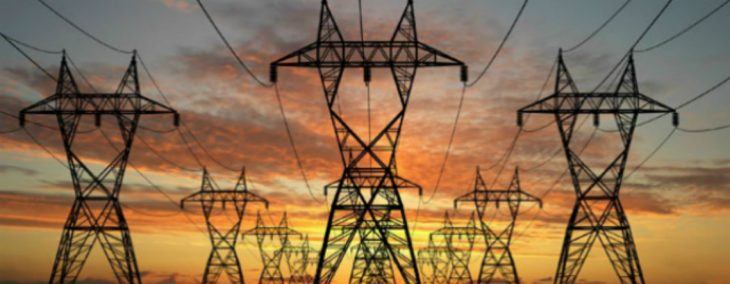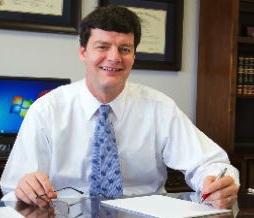Arkansas PSC Chair calls Trump energy policy inconsistent, says let market decide
by October 10, 2017 6:30 pm 697 views

The state’s top utility regulator said Tuesday (Oct. 10) a proposed federal rule some critics say would prop up the nation’s declining coal and nuclear power industries would put the Trump administration in the untenable position of selecting “winners” in the U.S. energy marketplace.
Arkansas Public Service Commission Chairman Ted Thomas, one of Gov. Asa Hutchinson’s first key appointments after being sworn into office in January 2015, made the comments following his keynote speech at the Arkansas Advanced Energy Association’s (AAEA) annual meeting in Little Rock.
Thomas, in response to a question concerning the U.S. Department of Energy (DOE) Secretary Rick Perry’s proposal on Sept. 29 to take “swift action” to address threats regarding the reliability and resiliency of the U.S. energy grid, said the administration’s actions were not consistent with an earlier DOE study on the same subject.
“(If) we take a fuel neutral policy, and turn it into where we are picking winners, even though … EPA Administrator (Scott Pruitt) was quoted as saying we’re not going to pick winners. What they are doing is choosing coal and nuclear over (natural) gas and renewables as winners. I don’t think that is a good way to use the (grid) markets,” Thomas, a former Republican lawmaker, told an audience of more than 150 energy officials and policymakers at AAEA’s annual policy meeting.
GRID RELIABILITY AGENDA
Thomas’ comments come only two weeks after the DOE Secretary Rick Perry took the unusual step of proposing that the Federal Energy Regulatory Commission (FERC) issue a final rule requiring its organized markets to develop and implement reforms “to maintain the reliability and resiliency” of the nation’s grid.
“A reliable and resilient electrical grid is critical not only to our national and economic security, but also to the everyday lives of American families,” Secretary Perry said in a statement. “A diverse mix of power generation resources, including those with on-site reserves, is essential to the reliable delivery of electricity—particularly in times of supply stress such as recent natural disasters. My proposal will strengthen American energy security by ensuring adequate reserve resource supply and I look forward to the Commission acting swiftly on it.”

Under direction from President Donald Trump, Perry in April directed the DOE staff to prepare a report on the reliability of the nation’s energy grid and then make policy recommendations that could be implemented quickly. Although Perry’s memorandum never specifically mentioned the renewable energy industry, it did say subsidies for certain industries destroyed jobs and economic growth.
After receiving the DOE staff’s 181-page report in late August, Perry said regulatory burdens introduced by the previous administration were designed to decrease coal-fired electric generation and nuclear power and threaten “to undercut the performance of the power grid well into the future.” Under the new policy recommendations, Perry asked FERC to push regional transmission organizations such as Little Rock-based Southwest Power Pool (SPP) to better compensate and expedite the permitting process for hydroelectric, coal and nuclear plants.
NATURAL GAS AND ‘ELVIS’
But Thomas drew laughter from the AAEA audience after he noted that Perry’s DOE study cited the low natural gas prices as the primary reason for the closure of the nation’s coal plant fleet, not renewable energy. He said the Trump administration’s policy recommendations were not consistent with the agency’s own DOE study.
“First of all, when the DOE grid study came out, I was relieved because it said the main culprit in the struggle that the coal (industry) is having is natural gas. I have said publicly that anyone who believes otherwise still thought that Elvis was alive,” Thomas said dryly. “I don’t see the DOE study and the DOE proposal as being consistent. If it is a (natural) gas problem, then the way to solve it is too ban fracking if you want to bring coal mines back to work.”
Earlier at the AAEA meeting, a panel discussion that included former U.S. Rep. Mike Ross, D-Prescott, and energy expert Scott Hamilton also discussed the DOE directive for new energy grid rules. Both cited the extraordinary steps taken by Perry to push FERC to address grid reliability in just 60 days, and then giving grid operators such as SPP and Midcontinent Independent System Operator (MISO) only 15 days to implement it.
“These market rules have been 20 years in the making. They are as much about reliability as they are about cost,” said Ross, SPP’s vice president of governmental affairs and public relations. “This is the most substantive proposed change to market rules in the wholesale electric market in over a decade.”
Hamilton, regional director at MISO’s Little Rock office, said the DOE recommendations also include a controversial proposed rule that energy producers must secure a 90-day fuel supply onsite during an emergency such as a hurricane or other natural or man-made disaster, which solely applies only to coal and nuclear power plants today.
“Well, we are still trying to figure out what is the definition of resiliency. Also, what is a 90-day fuel supply? Is that coal, nuclear … and the sun kind of hangs around for 90 days,” Hamilton said jokingly.
Ross, who sat on the influential U.S. House Committee on Energy and Commerce, added: “Part of this is that President Trump has made a pledge to the coal industry that he would support them, and I think he is fulfilling that pledge.”
Ross’ and Hamilton’s panel, which also included Peter Candelaria, chief technology officer at solar producer Silicon Ranch, discussed the impetus behind the robust growth experienced by Arkansas’ renewable energy sector over the past decade. One presentation noted that renewable energy generation in Arkansas is nearing 20%, while coal use has declined from 76% to below 50%.
“We don’t choose the winners and losers, the market does that,” Ross said.
AAEA POLICY WATCH
Besides Thomas’ luncheon speech and the morning panel discussion, AAEA Executive Director Katie Niebaum and other attendees at the all-day meeting highlighted the PSC’s upcoming Nov. 30 docket on the state’s net metering rules and regulations.
Last month, following a year-long study by a PSC-called “working group,” state regulators submitted split recommendations on regulations to govern how Arkansas’ net-metering customers may generate their own power and receive a retail credit for any unused power sent back to their local utility.
Traditional utilities, such as Entergy Arkansas, Arkansas Electric Cooperatives and Southwestern Electric Power Co., are advocating an “embedded” cost of service approach to determine the costs and benefits of net-metering. The second group, which includes AAEA, Sierra Club and Scenic Hill Solar, seek a continuation of the current net-metering rate design until a cost-benefit analysis has been conducted and approved by the PSC.
